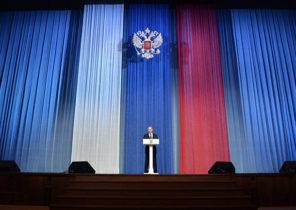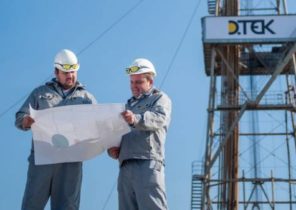According to the “leaks” given in the article from Reuters, the administration of the President of the United States Donald trump will begin in the next few weeks the formal talks with key allies about developed in America legal project relating to the mining operations on the moon.
According to the administration of the United States, the Pact called “Agreement of Artemis” (Artemis Accords), provides the framework of rules and requirements for those companies who will engage in the sale of extracted space resources.
According to reports, the agreement envisages the creation of “security zones” (safety zones) around the locations of mining operations to prevent damage from the actions of other companies and countries and from their interventions, and all of this can be seen as a sovereignty claim. The United States plans to start talks with its closest allies and partners, having the opportunity to conduct exploration in space, including France, the United Kingdom, Japan, Canada and the United Arab Emirates.
Despite the success of the implementation by China of its lunar program, the United States once again trying to establish dominance in space from the point of view of private and public industry with new lunar and Martian projects.
Washington regards the Chinese successfully implemented a programme to explore the moon, called “Changye” (Chang’e Program), as a long-term attempt to establish dominance of Beijing, on the moon, including mining.
Development on the moon minerals for use on the satellite of the Earth, and in the future on Mars and in the asteroids, too, is expected to be significantly less costly than the cost of delivery of one kilogram of cargo into space from the Earth’s surface.
To prevent the implementation of this Chinese strategy, the United States recently accelerated their own plans for sending astronauts to the moon in the period up to 2024, and it happened for the first time after the end of the Apollo program in 1972.
For the first time since the completion of the program of space shuttles in 2011, Washington also plans to independently send astronauts into low earth orbit on a space ship “SpaceX” (SpaceX), this flight is scheduled for may 27.
American commercial space companies, including “SpaceX”, working on drafting long-term plans for flights to Mars and asteroids to explore opportunities for mining, including those using manned expeditions, they expect to get ahead of all competitors on the red planet.
However, the key allies of the United States may not agree with the negotiating strategy, Washington, as well as with the details contained in the draft “Agreement of Artemis”.
And the European Union, and the United Arab Emirates have a long history of cooperation in space with China and Russia, so they deem inappropriate for any framework agreement involving only the United States and Europe and excluding the two most important space power.
The White house plans to create “security zones” may seem like a de facto claim to sovereignty over certain parts of the moon or can be interpreted in such a way, and it is forbidden in accordance with the 1967 Treaty on outer space (Outer Space Treaty).
The European Union and possibly the United Arab Emirates, most likely, too will play against the United States has taken efforts to a quick signing of the Pact.
The United States will probably try to force China or Russia to accept the United States framework, but most likely it is Beijing will refuse it.
China has its own plans to create a colony on the moon by 2030, and it is the most active researcher of the moon in the last few years.
And allies of the United States and China are against such agreements, therefore, will remain significant uncertainty regarding international law and legal claims for exclusive rights on the moon minerals and their development.
The lack of clarity in international rules will force the private sector to refrain from implementing risky and expensive projects for the development of mineral resources on the moon and other celestial bodies, which ultimately will slow down the implementation of global programmes for the development of outer space.







